Two men have pleaded guilty midway through their trial to people smuggling.
Dilshad Shamo, 41, and Ali Khdir, 40, were convicted for their roles in an operation which ran through Europe labelled “Tripadvisor for people smugglers”.
They brought about 100 migrants illegally to Europe each week, over a period of two years.
The pair – based in a car wash in the south Wales town of Caerphilly – offered the migrants bronze, silver, gold and platinum packages, depending on risk.
A platinum package could get you a flight, whereas silver might land you a “comfortable ride” in the back of a lorry.
Migrants from the Middle East heading to Europe rated their journeys in videos filmed inside lorries, boats and even on planes.
“How was the route, lads?” a man asks in one clip, as someone at the back of the lorry gives a thumbs-up.
Investigators found the video reviews on the phones of the smugglers themselves, seemingly made as promotional material.
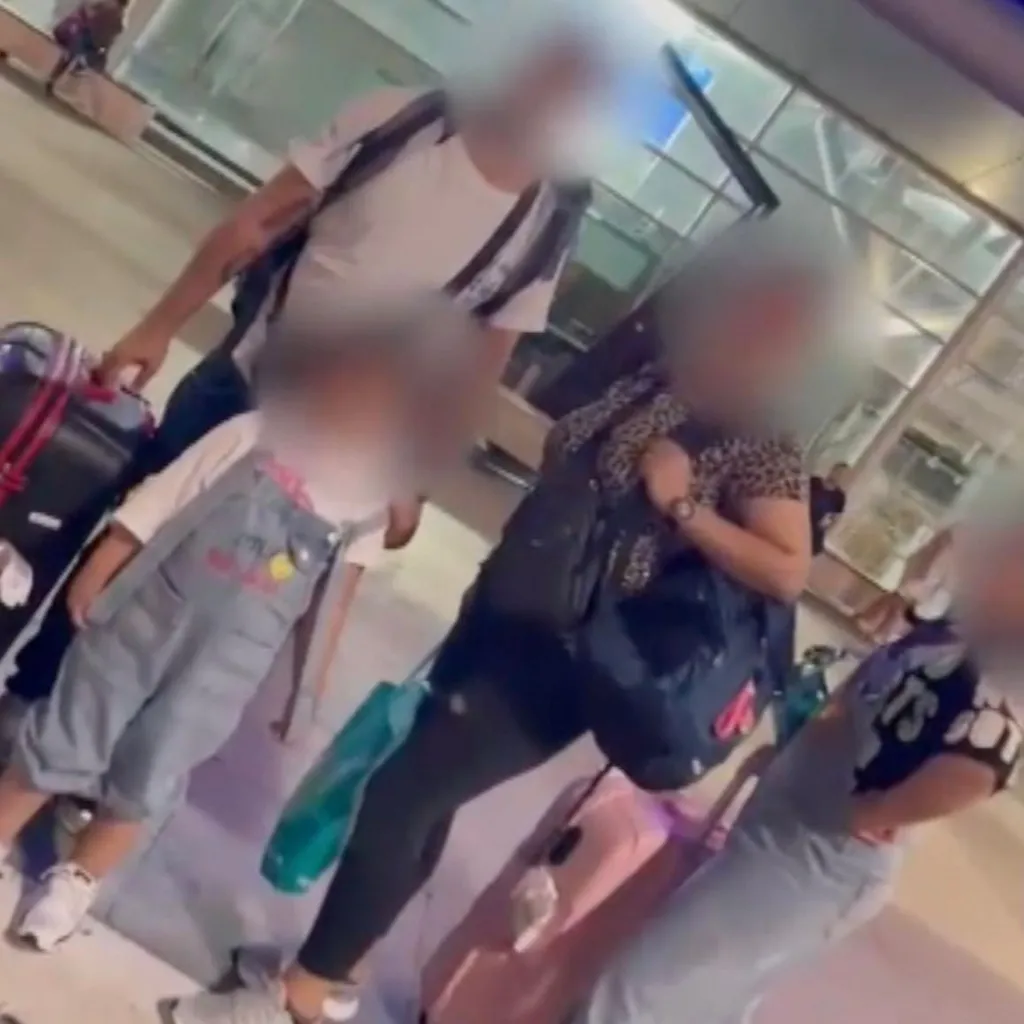
According to the National Crime Agency (NCA), most of the people using their services were from Iran, Iraq and Syria, searching for a better life in western Europe. Many are believed to have come to the UK.
In one video, a migrant said: “Lorry route agreement with knowledge of the driver; here we have men, women and children – thank God the route was easy and good.”
Another showed men smiling to the camera as they pointed to at least a dozen others on a boat travelling rapidly over the water.
People smugglers ‘like a travel agent’
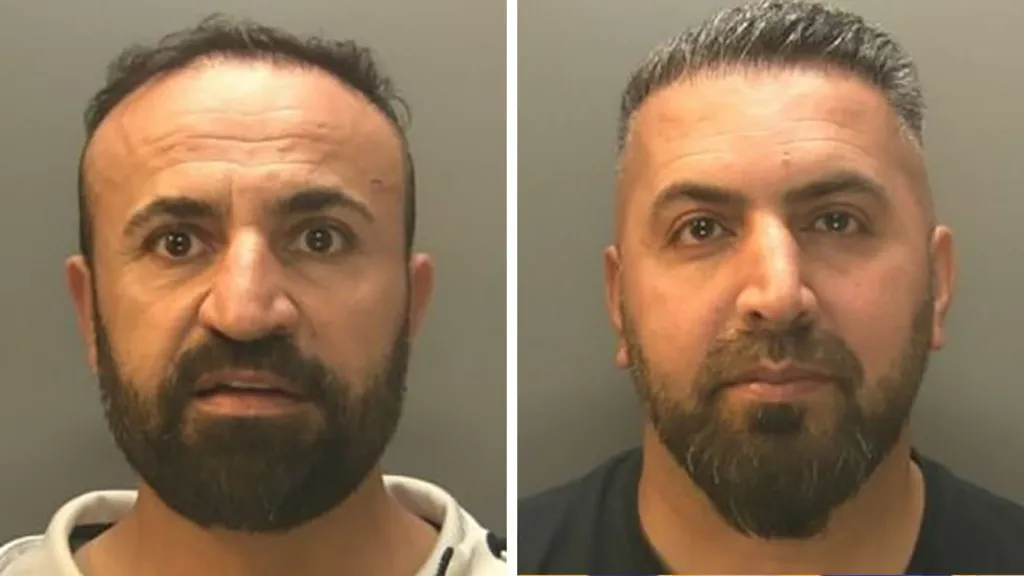
Derek Evans, from the NCA, said the pair operated “like a travel agency”.
“It’s like Tripadvisor, they were rating their service within that community,” he said.
The highest tier offered – platinum – would get migrants a fake passport and air travel, costing between £10,000 and £25,000.
The gold tier would be by vessel costing about £8,000-£10,000, while bronze, the most risky service – between £3,000 and £5,000 – would involve travel in a heavy goods vehicle.
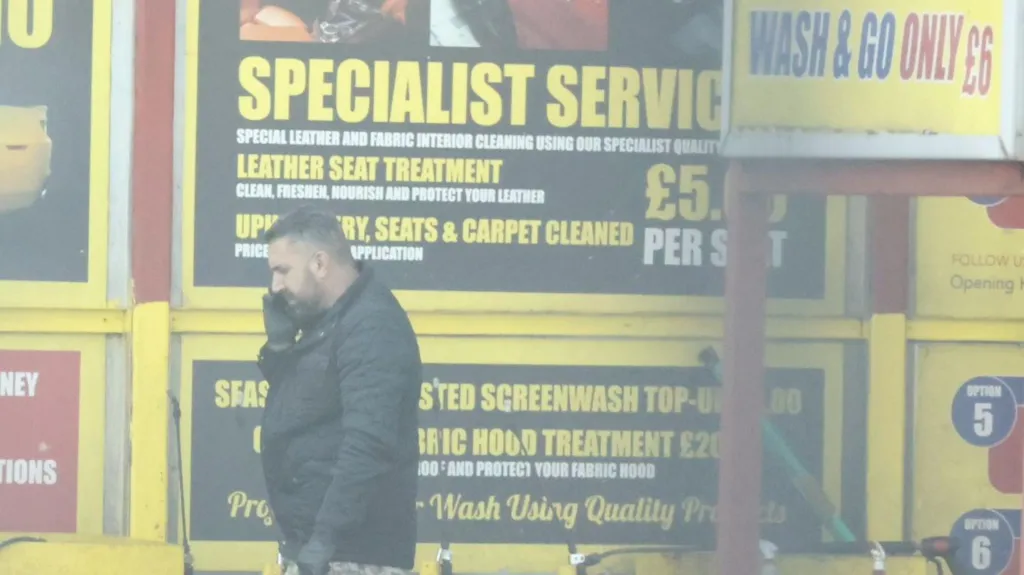
The NCA tracked the smugglers down after a tip-off and secretly recorded some of their phone calls.
“From last Friday till last night, I have been smuggling people,” Shamo said in one conversation.
“A batch every single day, Kurds from Turkey… so this week, I smuggled six to seven batches.”
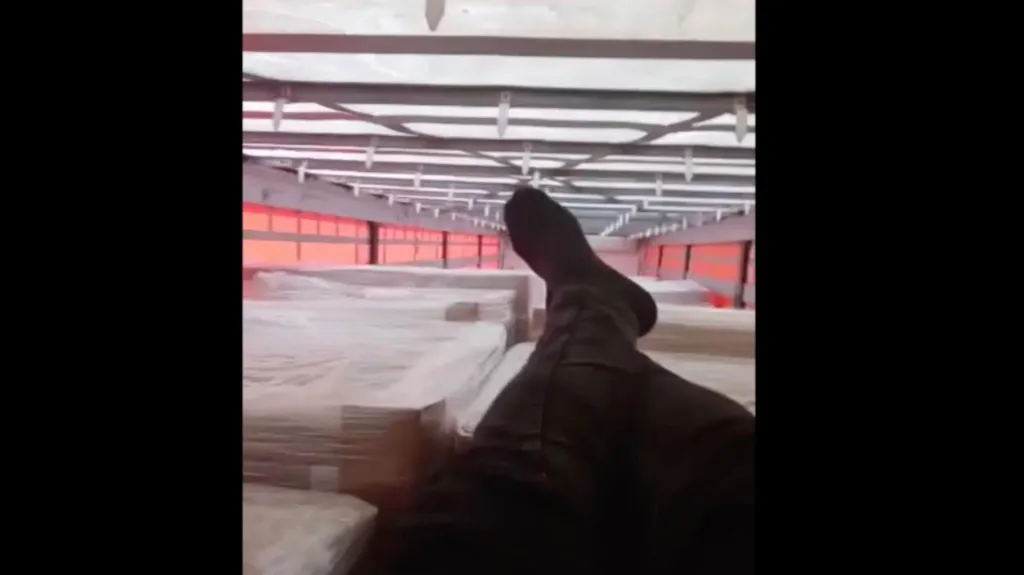
Profits unlikely to be recovered
Mr Evans told the BBC Wales Investigates programme that they hope to have “dismantled and disrupted” part of the smuggling industry.
But he said there was “no doubt” someone else would take over because it was such a “fruitful business model”.
Shamo and Khdir made hundreds of thousands if not millions of pounds, he said, but the profits were unlikely ever to be recovered.
This is because they used a system known as hawala banking, which does not require detailed information from those using it.
Individuals can deposit money to a hawala broker in one country, and a recipient withdraws it from a broker in another country, using a code.
This means money is transferred without any cash being physically moved. No identification is needed from those using it.
While there are legitimate and even “essential” uses for it – such as people without bank accounts sending remittances to their families abroad – it is also a system that is “attractive for criminal activity”, said Claire Healy, of the UN’s Office on Drugs and Crime (UNODC).
On the trail of the smuggling gangs
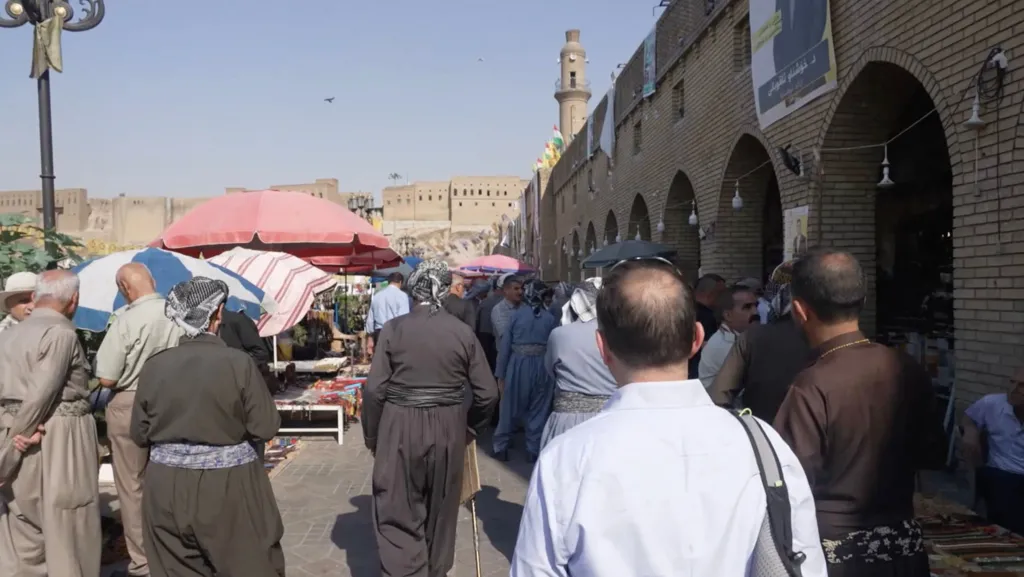
We knew that from their car wash in south Wales, Shamo and Khdir had contacts in Iraq as a key part of their smuggling operation.
So we travelled to the city of Erbil and enlisted the help of a local man with knowledge of smuggling gangs to find out more about the shady but hugely profitable smuggling industry.
He quickly found adverts on TikTok offering a similar service to the men from Caerphilly, but they were unlikely to talk openly about illegal activity.
So we went undercover, sending our contact in to pose as an Iraqi man looking to reach the UK.
One smuggler said he could arrange for us to be taken from France to the UK in the back of a lorry for $5,000 (£3,900).
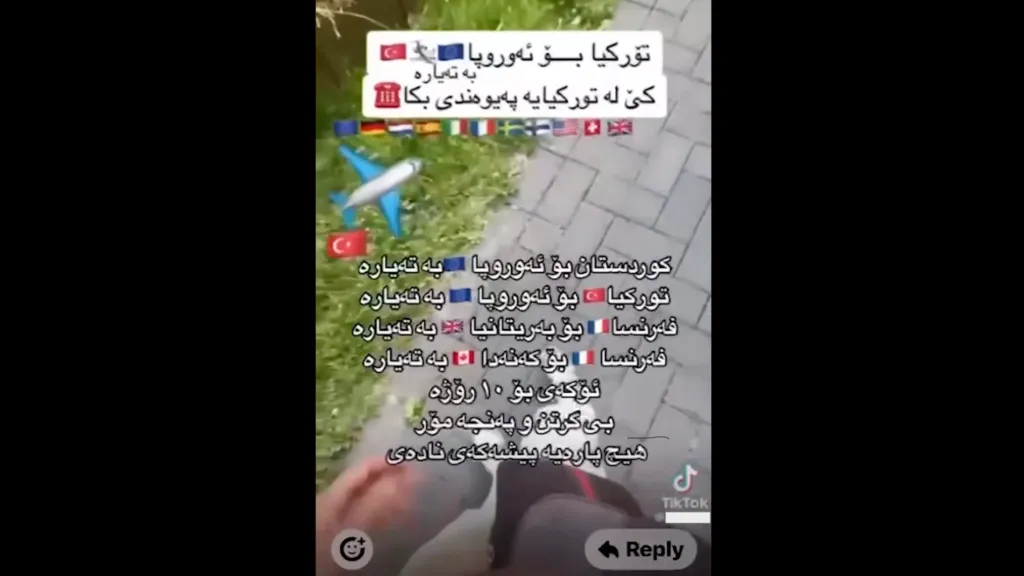
Another man, who called himself Bawar, claimed to be based in Cardiff and offered a more comfortable trip, with a fake passport.
“My brother, we have by plane from France to Britain… we guarantee no stoppage or fingerprinting,” he told us.
“The amount is $8,000 (£6,200) and you can easily deposit the amount in any transfer office you want.”
To finalise the deal, Bawar told us to deposit the money at a hawala in Erbil.
When our undercover reporter arrived there, the man running it appeared familiar with the arrangement. We confirmed we were travelling by plane with documents provided by Bawar.
“OK, fine. You must know that the [hawala] fee is £400,” he replied.
We did not go through with the deal, but it appeared to illustrate how easily the hawala banking system is being exploited by smugglers.
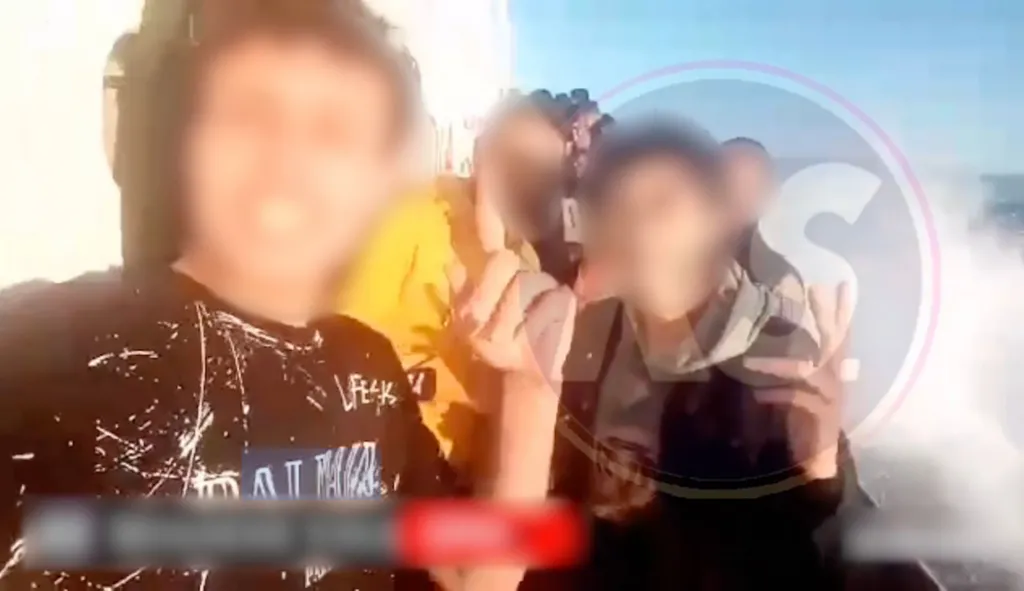
When the BBC approached Bawar for comment, he denied being involved in smuggling, claiming he was a shepherd who had no money.
The hawala owner in Erbil denied offering to take money to help our undercover reporter travel to the UK on a false passport.
Mr Evans, from the NCA, said only some of the known hawalas in the UK were registered with the financial authorities, while many others were working within a criminal network.
But not enough was being done to identify how this kind of banking was exploited by smugglers and other criminals, said Dr Healy.
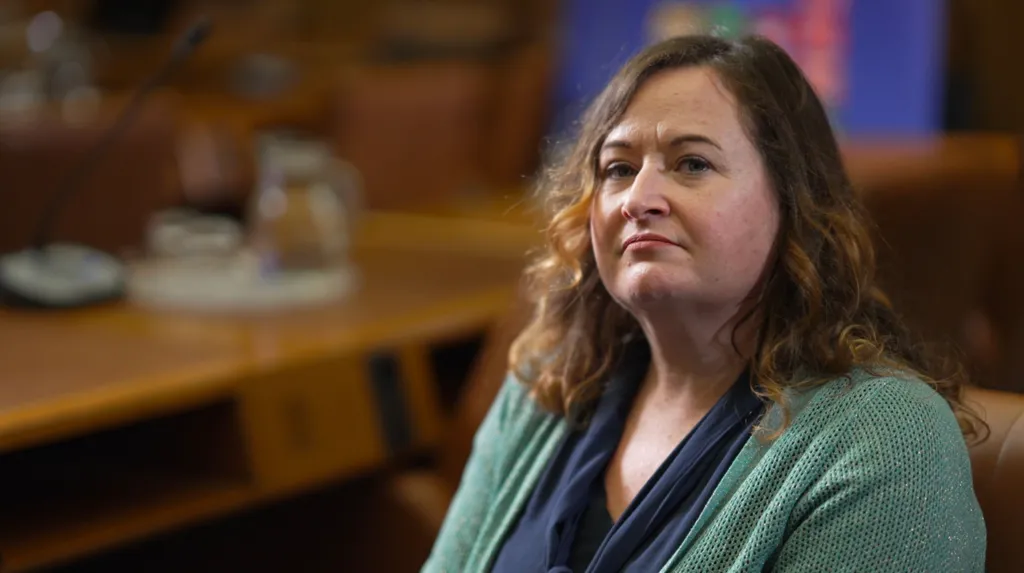
“I think a lot of countries are struggling in their responses because they really don’t understand the system.
“Very often it’s simply the person driving a boat or driving a car who gets arrested… these are actors who are very easily replaceable.”
Dr Healy said more financial expertise was required to locate the criminals making big profits, and further work was needed to regulate hawalas to flag suspicious transactions, while ensuring legitimate business could continue.
“It’s also extremely urgent – we’ve seen around the world, including the UK, the dangerous conditions in which smuggling happens and the lives that are lost.”
A spokesperson for TikTok told the BBC it had “zero tolerance for content that promotes human smuggling” and would remove accounts that break its rules.
It said it worked with the NCA to “identify and combat organised immigration crime online and respond to evolving threats”.
The UK government, having pledged to freeze the bank accounts of smugglers, said it would “stop at nothing to dismantle vile people smuggling gangs”.
It added that the NCA was working closely with international partners to develop intelligence to disrupt criminals who use the hawala system to launder profits.
